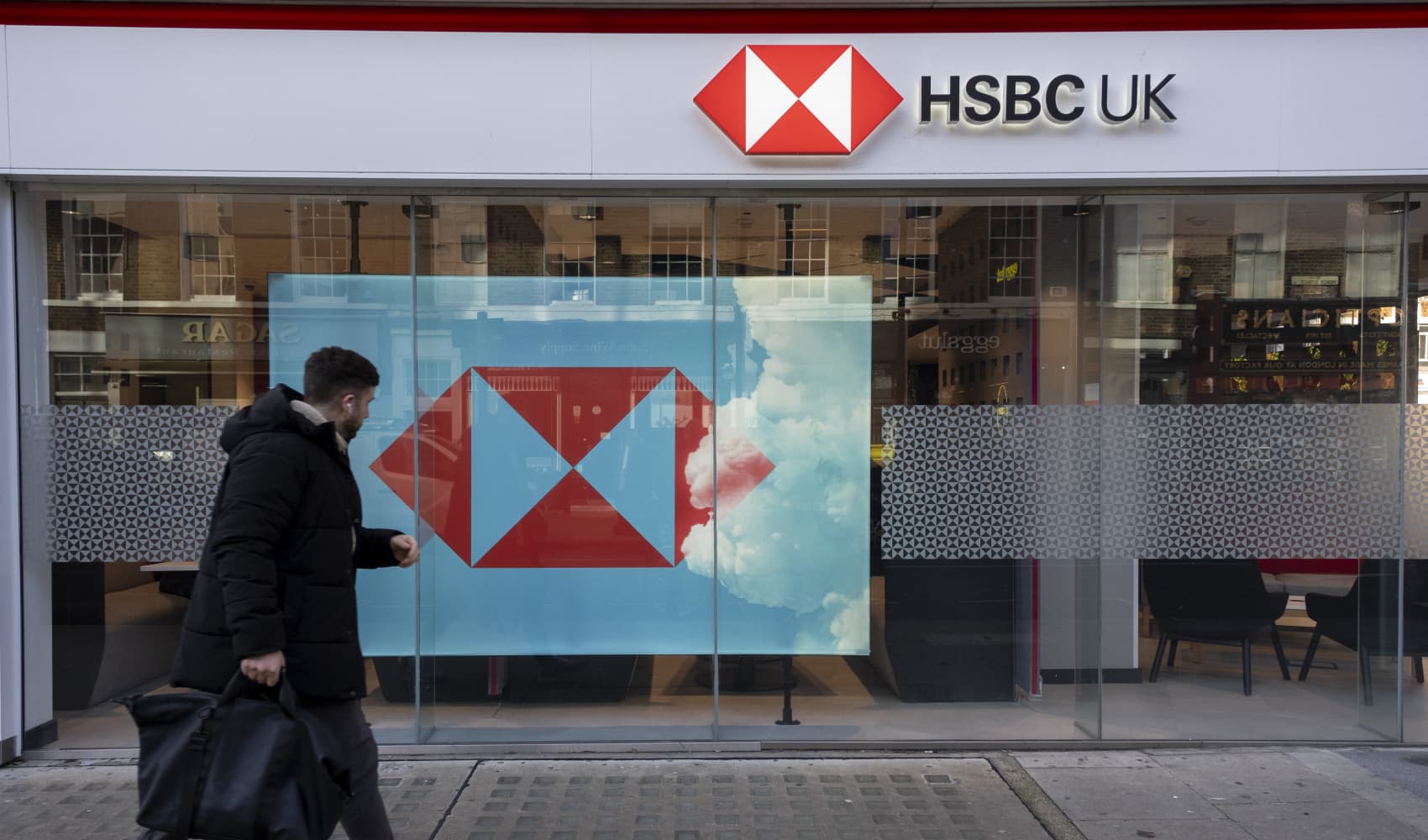HSBC's $3B Buyback: What It Means for Your Portfolio
HSBC Stock Soars: $3 Billion Buyback Sends Signals of Strength
Introduction: A Bullish Sign for HSBC Investors?
Hold onto your hats, investors! HSBC, Europe's largest lender, just dropped some exciting news. Their first-quarter results blew past expectations, fueled by a thriving wealth management business and a solid performance in corporate and institutional banking. But the real kicker? They're announcing a share buyback program of up to a whopping $3 billion! What does this mean for you? Let's dive in and explore the implications of this move.
Strong Q1 Results: Beating the Street
First things first, let's talk about those impressive first-quarter results. They weren't just good; they were *better than expected*. This isn't just some lucky break; it's a testament to HSBC's strategic direction and its ability to capitalize on market opportunities. Think of it like a seasoned sailor navigating choppy waters and still managing to reach their destination ahead of schedule.
Wealth Management Drives Growth
One of the major engines powering this success is HSBC's wealth management business. In a world where individuals are increasingly focused on securing their financial future, HSBC is stepping up to the plate, offering tailored solutions and expert guidance. It's like having a financial GPS, helping you navigate the complexities of investment and retirement planning.
The $3 Billion Buyback: A Vote of Confidence
Now, for the main event: the share buyback. A share buyback, in simple terms, is when a company uses its own cash to repurchase its shares from the open market. This reduces the number of outstanding shares, potentially increasing the value of the remaining shares. Think of it like baking a cake and then deciding to eat a slice – there's less cake to go around, making each remaining piece more valuable.
What Does a Buyback Signal?
A share buyback is often seen as a sign of confidence from the company's management. It suggests that they believe the company's shares are undervalued and that investing in themselves is a smart move. Essentially, they're saying, "We believe in our company, and we're putting our money where our mouth is."
Deadline for Completion: Interim 2025 Results
HSBC intends to complete this $3 billion buyback before the announcement of its 2025 interim results. This gives them a clear timeline and signals their commitment to executing the program effectively. It's like setting a deadline for a project – it helps to keep everyone focused and accountable.
Macroeconomic Uncertainty: A Cloud on the Horizon
Despite the positive news, HSBC isn't ignoring the challenges ahead. The bank has warned of heightened macroeconomic uncertainty, pointing specifically to protectionist trade policies. These policies can negatively impact consumer and business sentiment, leading to slower economic growth. It's like driving through a dense fog – you need to proceed with caution.
Protectionism and Its Impact
Protectionist trade policies, such as tariffs and trade barriers, can disrupt global supply chains and increase costs for businesses. This, in turn, can lead to higher prices for consumers and reduced investment. Think of it like building a wall around your garden – it might keep out some pests, but it also prevents you from selling your produce to the outside world.
DBS Bank's Perspective: Restructuring Benefits
Manyi Lu, an equity research analyst at DBS Bank, offers a more optimistic outlook. Lu believes that HSBC's restructuring progress should continue to bring positive impacts on cost-saving, despite the uncertainties surrounding global trade. This suggests that HSBC's internal efforts to streamline operations and improve efficiency are paying off. It’s like renovating a house – even if the neighborhood is facing challenges, a well-maintained home can still retain its value.
Shareholder Value: What It Means for You
Ultimately, a share buyback aims to increase shareholder value. By reducing the number of outstanding shares, each remaining share represents a larger ownership stake in the company. This can lead to higher earnings per share and potentially a higher stock price. Think of it like slicing a pizza into fewer pieces – each slice is bigger and more satisfying.
Potential for Increased Dividends
Beyond share price appreciation, a buyback can also pave the way for increased dividends in the future. With fewer shares outstanding, the company has more earnings available to distribute to shareholders. It’s like having more money in your pocket – you can choose to spend it, save it, or invest it.
HSBC's Global Footprint: A Competitive Advantage
HSBC's global presence gives it a distinct advantage in the banking industry. With operations spanning across multiple continents, the bank is well-positioned to capitalize on growth opportunities in emerging markets. This diversification helps to mitigate risk and provides a stable foundation for long-term growth. It's like having a diversified investment portfolio – if one sector is underperforming, others can help to offset the losses.
Digital Transformation: Adapting to the Future
Like many financial institutions, HSBC is heavily investing in digital transformation. This includes developing new digital products and services, streamlining online processes, and leveraging data analytics to improve customer experience. By embracing technology, HSBC is positioning itself for success in an increasingly digital world. It’s like upgrading from a horse-drawn carriage to a high-speed train – you can travel faster and more efficiently.
Risk Management: Navigating Volatility
In the current economic climate, effective risk management is more crucial than ever. HSBC has a robust risk management framework in place to identify, assess, and mitigate potential threats to its business. This helps to ensure the bank's stability and resilience in the face of market volatility. It’s like having a strong anchor on a ship – it helps to keep you grounded during a storm.
The Future Outlook: Cautiously Optimistic
While macroeconomic uncertainties remain, HSBC's strong first-quarter results and share buyback announcement paint a cautiously optimistic picture for the future. The bank's focus on wealth management, coupled with its global footprint and digital transformation efforts, positions it well for continued growth. However, investors should remain vigilant and monitor macroeconomic developments closely.
Regulatory Landscape: Staying Compliant
The financial industry is heavily regulated, and HSBC must navigate a complex web of rules and regulations in different jurisdictions. Staying compliant with these regulations is essential for maintaining its reputation and avoiding penalties. It's like following the rules of the road – it keeps you safe and prevents you from getting a ticket.
Competition: Staying Ahead of the Curve
The banking industry is highly competitive, with numerous players vying for market share. HSBC must constantly innovate and adapt to stay ahead of the curve. This includes developing new products and services, improving customer experience, and leveraging technology to gain a competitive edge. It’s like running a race – you need to keep pushing yourself to stay ahead of the pack.
Conclusion: Key Takeaways for Investors
In conclusion, HSBC's first-quarter results exceeding expectations and the announcement of a $3 billion share buyback are undoubtedly positive signs. This indicates strong performance in its wealth management and corporate divisions, as well as management's confidence in the company's future. However, it's important to acknowledge the looming macroeconomic uncertainties that could potentially impact the bank's performance. As an investor, consider this: The buyback signals confidence, but the global economic climate demands careful monitoring. Keep an eye on how HSBC navigates the challenges ahead, and you'll be well-positioned to make informed investment decisions.
Frequently Asked Questions (FAQs)
Here are some frequently asked questions about HSBC's recent announcement:
- Q: What exactly is a share buyback, and how does it work?
- Q: Why would a company announce a share buyback?
- Q: How will the $3 billion buyback affect HSBC's stock price?
- Q: What are the potential risks associated with macroeconomic uncertainty?
- Q: Is HSBC a good investment right now?
A: A share buyback, also known as a share repurchase, is when a company uses its own cash to buy back its outstanding shares from the open market. This reduces the number of shares available, potentially increasing the value of each remaining share.
A: Companies typically announce share buybacks when they believe their shares are undervalued and that investing in themselves is a good use of capital. It can also signal confidence in the company's future prospects.
A: The impact on the stock price is difficult to predict with certainty. However, buybacks can often lead to an increase in stock price due to reduced supply and increased demand. The overall market conditions and investor sentiment also play a role.
A: Macroeconomic uncertainty can lead to slower economic growth, reduced consumer spending, and increased volatility in financial markets. Protectionist trade policies, in particular, can disrupt global supply chains and negatively impact business sentiment.
A: Whether HSBC is a good investment depends on your individual investment goals, risk tolerance, and financial situation. It's essential to conduct thorough research and consult with a financial advisor before making any investment decisions.




